Our ancestors left the problem of racism to us. My generation — and yours — has inherited a mess that was made centuries before we were born, and we are at great risk of passing it on to future generations.
Unless we do something differently.
An early step in solving any problem is to make sure you understand the problem. One small thing white people (like me) must do if we ever hope to even begin to address and resolve racism is to simply listen. Listen without judgment, with only the intention to understand.
Unless I am continually doing this, I cannot know what I don’t know.
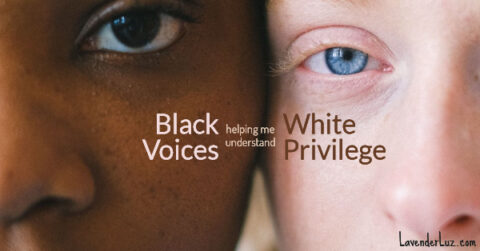
White Privilege Remains a Blind Spot Until We Choose to See
I am betting that many of my white readers (those or all shades, really) feel the same as I do in wanting a society that is more kind, more just, and less violent. We want to understand, we want to listen, we want to ally in meaningful ways, we want to leave the world a better place than it was when we found it.
What has kept white people like me from understanding racism more readily? One big factor is the blind spot I, for one, have had around white privilege. I really didn’t even grasp its existence until I began listening, until I was open to hearing experiences different from my own.
Like so many of you, my desire to listen has intensified in recent weeks, months, years. I’d like to share a few Black perspectives that have made an impact on me.
A Short List of Black Voices Helping Me Understand White Privilege
- Media personality and former Denver Bronco Reggie Rivers has a super helpful article about privilege that barks up the right tree. (If you find it behind a paywall, try here.)
- I remember reading this, from Lori Lakin Hutcherson of GoodBlackNews.org, when it first came out a few years ago. I find #9 to be particularly eye-opening.
- Ibram X Kendi is interviewed by Gayle King (with an additional non-Black guest and non-Black host). At 3:39, Ibram X Kendi posits there are only two possible answers to questions about racial disparity. Which one do you think accounts for it?
- A 1-minute video clip of Little House on the Prairie ends with an important question. Via discussion on The Root.
Are you open to listening? What is helping you to better understand white privilege?
More Impactful Resources on the Issue of Race
- Want evidence that listening and understanding can lead to disarming? Watch this.
- Wonder if you’re privileged? Watch this.
- Chomping at the bit to do something now? Choose a few items on this list. Or this one.
- Want to be gutted? (I am.) Consider this.
- Want to be moved? Listen to this. Or this.
~~~~~
This post is part of #Microblog Mondays. What’s that? A post that is not too long. Head over to Stirrup Queens to join.
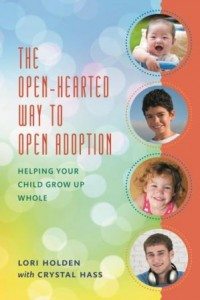
Lori Holden, mom of a young adult daughter and a young adult son, writes from Denver. She was honored as an Angel in Adoption® by the Congressional Coalition on Adoption Institute.
Her first book, The Open-Hearted Way to Open Adoption: Helping Your Child Grow Up Whole, makes a thoughtful anytime gift for the adoptive families in your life. Her second book, Standing Room Only: How to Be THAT Yoga Teacher is now available in paperback, and her third book, Adoption Unfiltered, is now available through your favorite bookseller!
Find Lori’s books on her Amazon Author page and catch episodes of Adoption: The Long View wherever you get your podcasts.

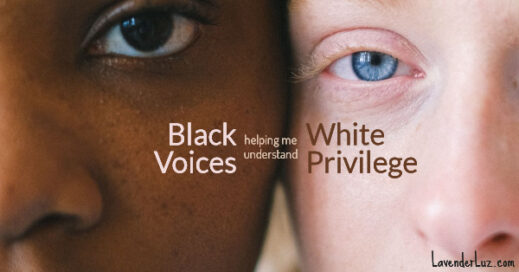
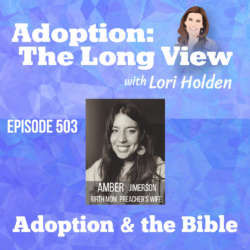
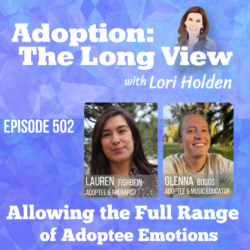
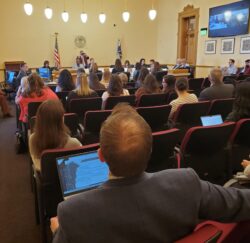
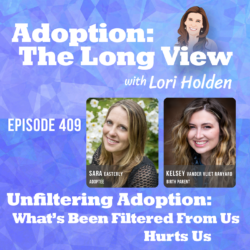
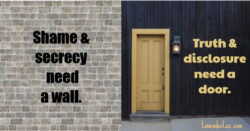
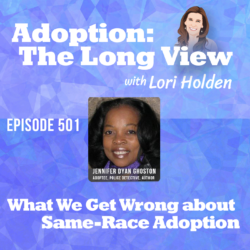

6 Responses
This is a great list Lori! I remember the Little House on the Prairie episode as a child; it gutted me then and guts me now. Thank you for advocating for listening.
Well said, Lori. And thank you for this list too. I’ve learned a lot from the debates in the US over the years – I still remember watching Roots on TV as a teenager – and have learned (and I’m still learning) to apply it to situations in NZ as well. It is all very helpful.
Thank you for doing all of this research, and reminding me to open my heart and my mind to my own thoughts and beliefs that can either help, or hurt others. Thought- and tear-providing. Now it’s time for action. Thank you!
Thank you for sharing what has made an impact on you. It was my first time seeing that interview.
I think one of the best things to do is to acknowledge that you have privilege, and to figure out how to use that for people who don’t . Making friends with a diverse group of people can help, if you listen when they speak of their experiences without trying to relate obstacles that you may have overcome. (That’s been my issue to overcome – I want to convey that I have shared experiences…but I really don’t.) When you’re not part of a marginalized racial group, your obstacles are not compounded by race. I think that’s why it’s hard for women to get – our male-dominated society means that women are marginalized already. And since people get really invested in the Pain Olympics, it can be hard to recognize that someone really does have it worse than you, especially if they appear to have a better grip on things or don’t spend all their time crying.
Anyway, these are difficult waters to navigate, but it’s something we must do!
Thanks for the resources, Lori! I’ve been doing a lot of thinking about this lately too (as I think many of us have). It’s hard to admit our own privilege & ingrained biases, but it’s something we’re going to have to do if we want to get anywhere on these issues.